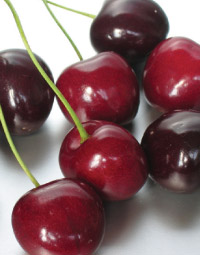Soil & Sea: reports from our producers
This article was originally published in August 2011

Local, organic peach yields are down due to the cold spring but the fruit is great quality. This month PCC has Red Globe and Blazing Star varieties from Bob Berryman at Twin Springs Farm in Kettle Falls, Wash.
The Northwest cherry crop, though late, has had excellent fruit size, color and flavor. It’s one of the largest harvests in the past ten years with a 22 percent increase from 2010. Fresh cherries may be available to consumers into September.
Washington apples may be late this year by about 7 to 14 days, putting new-crop Galas back to early September. Growers are worried about size due to the cool spring.
Domestic Hass avocados are still in light supply. Prices will remain high until the Hass season begins in Chile in September.
Maui pineapple production is very light at best. Papayas and bananas are steady.
Washington is the top oyster producer surpassing Louisiana after last year’s BP oil spill and a wet Southern spring hampered the harvest there. Washington oyster farms produced 9 million pounds of oysters last year and are getting record high prices for them.
Sea scallop harvests declined by 19 percent in 2010 compared to 2009 — roughly 11 million pounds. Prices are at record highs.
Climate change may shrink the amount of prime wine growing land in California by 50 percent and in Washington by 30 percent over the next three decades. Research from Stanford University projects that even a moderate increase in greenhouse gases would hurt production in California and Washington.
Higher average temperatures during the growing season are expected with more days over 95° F. Oregon is projected to fare better. It may see a slight increase in the amount of suitable acreage and a large increase in areas suitable for valuable varieties.
